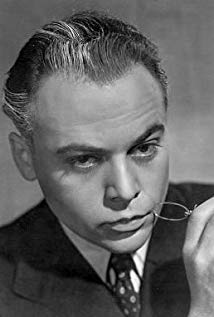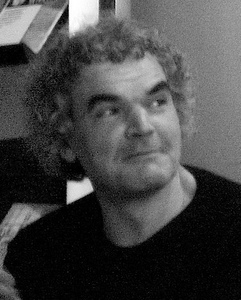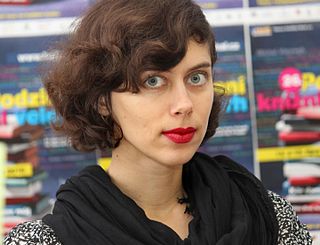 W
WMichal Ajvaz is a Czech novelist, poet and translator, an exponent of the literary style known as magic realism.
 W
WJindřich Šimon Baar Czech pronunciation (help·info) was a Czech Catholic priest and writer, realist, author of the so-called country prose. He joined the Czech Catholic modern style, but later severed the ties with that movement. As writer, he emphasized traditional moral values of the countryside.
 W
WJan Balabán was a Czech writer, journalist, and translator. He was considered an existentialist whose works often dealt with the wretched and desperate aspects of the human condition.
 W
WEduard Bass, born Eduard Schmidt, was a Czech prose writer, journalist, singer, and actor.
 W
WAlexandra Berková was a Czech writer and educator.
 W
WAvigdor Dagan was an Czech and later Israeli writer, playwright, literary translator and diplomat. Prior to adopting the Hebraic name in 1955, his name was Viktor Fischl, Dagan, being related to the Hebrew word dag (fish), an approximate translation of Fischl as a diminutive of "fish".
 W
WOta Filip was a Czech novelist and journalist. He wrote in both German and Czech.
 W
WFrantišek Flos was a Czech writer. His novel, Lovci orchidejí, was published in 1920.
 W
WLuděk Frýbort is a writer and author living in Hanover, Germany.
 W
WAdam Georgiev is a Czech poet and author of prose. He is most known as an author of gay literature; in 2010 he was reported by Czech Television to be the highest-selling gay author in the country.
 W
WJiří Hájíček is a contemporary South Bohemian Czech writer. He started writing poetry in the 1980s in a youth poetry programme hosted by Mirek Kovářík. He won the 2006 Magnesia Litera prize for prose with his novel Selský baroko. In the European Society of Authors' 2013 Finnegan's List, Jaroslav Rudiš selected Hájíček's 2012 novel Rybí krev to be more widely translated into European languages. Rybí krev also won the Magnesia Litera Book of the Year for 2013. In 2016, his novel Zloději zelených koní was adapted into a film by Dan Wlodarczyk.
 W
WPatrik Hartl is a contemporary Czech novelist, playwright and theatre director.
 W
WJaroslav Hašek was a Czech writer, humorist, satirist, journalist, bohemian and anarchist. He is best known for his novel The Fate of the Good Soldier Švejk during the World War, an unfinished collection of farcical incidents about a soldier in World War I and a satire on the ineptitude of authority figures. The novel has been translated into about 60 languages, making it the most translated novel in Czech literature.
 W
WIgnát Herrmann was a Czech novelist, satirist and editor. He sometimes used the pseudonym Vojta Machatý, Švanda.
 W
WPetra Hůlová is a Czech writer.
 W
WVáclav Kaplický was a Czech writer, journalist and epic poet. He is most known as an author of historical fiction. Kaplický studied at Gymnasium in Tábor, finishing in 1914. In 1915 he was sent to the front in Galicia where he was taken captive (1916). Later he joined the Czechoslovak Legion. For his political opinions he was imprisoned by the legion and labeled as a traitor. After returning to Czechoslovakia in 1921 he worked in civil service. During the period 1922–1950, Kaplický worked in several publishing houses associated with the Czechoslovak Socialist Party. From 1950 he dedicated his time solely to writing.
 W
WVladimír Körner is a Czech novelist and screenwriter. His novels were also adapted into screenplays for about 20 films.
 W
WVáclav Jaroslav Karel Pinkava, better known by his pen name Jan Křesadlo, was a Czech psychologist who was also a prizewinning novelist and poet.
 W
WPaul Leppin was a 20th-century Bohemian writer of German language, who was born and lived in Prague.
 W
WHerbert Charles Angelo Kuchačevič ze Schluderpacheru, known professionally as Herbert Lom, was a Czech–English actor who moved to the United Kingdom in 1939. In a career lasting more than 60 years, he appeared in character roles, often portraying criminals or villains early in his career and professional men in later years.
 W
WMarie Majerová was a Czech writer and translator.
 W
WBohumil Hrabal was a Czech writer, often named among the best Czech writers of the 20th century.
 W
WLibuše Moníková was a Czech writer, publishing in the German language. In 1968, following the Warsaw Pact invasion of Czechoslovakia, she left to Western Germany.
 W
WSimona Monyová was a Czech novelist. She wrote more than 20 books and was a bestselling author in the Czech Republic. On 3 August 2011 she was found dead in her house. The police suspected her husband, Boris Ingr, was the murderer, as there was a history of domestic abuse. He was later convicted and sentenced to 15 years in prison. The sentence was upheld by the Supreme Court in 2013.
 W
WGustav Pfleger Moravský was a Czech novelist, poet and dramatist. He is generally associated with the Májovci, but was not actually a member of that group.
 W
WDavid Jan Novotný is a Czech novelist, scriptwriter and professor of dramaturgy.
 W
WPatrik Ouředník is a Czech author and translator, living in France.
 W
WIva Pekárková is a Czechoslovakia-born author who started writing and publishing novels after moving to New York City. Her novels are inspired by her various life experiences and she writes openly about sexuality, making her controversial in her native country. Most of her novels are originally written in Czech.
 W
WLenka Procházková is a Czech writer.
 W
WMarie Pujmanová was a Czech poet and novelist.
 W
WKarel Václav Rais was a Czech realist novelist, author of the so-called country prose, numerous books for youth and children, and several poems.
 W
WKarel Schulz was a Czech novelist, theatre critic, poet and short story writer, whose best known work is the historical novel Stone and Pain.
 W
WPetra Soukupová is contemporary Czech author, playwright, and screenwriter.
 W
WPetr Stančík is a Czech author, poet, novelist, essayist, dramatist and copywriter.
 W
WMiloslav Švandrlík was a Czech writer and humourist. He also used the pseudonym Roman Kefalín.
 W
WAndrzej Tichý is a Czech-Polish writer who has lived in Malmö, Sweden since 1981. He has written several novels and is regarded as one of the most important novelists of his generation. He has been nominated for the Nordic Council Literature Prize and the August Prize for Best Fiction Book of the Year. His fifth novel, Wretchedness (2020) published by And Other Stories, is his first to be translated into English and focuses on immigrants and the migrant crisis in Sweden. Speaking on the book with The Guardian, Tichý said: ‘From the outside, Sweden was this paradise. But it was never actually true’.
 W
WJáchym Topol is a Czech poet, novelist, musician and journalist who became a laureate of the State Prize for Literature in October 2017 for his novel Sensitive Man.
 W
WKateřina Tučková is a Czech novelist and curator. She is best known as the author of Žítkovské bohyně, a Czech bestseller translated into 16 languages.
 W
WMiloš Urban is a Czech novelist and horror writer, known as the "dark knight of Czech literature". He is best known for his 1999 novel Sedmikostelí, a Gothic crime horror set in Prague, which was translated into 11 languages. He is also a translator, and has translated works by authors including Isaac Bashevis Singer and Julian Barnes into Czech. He was the winner of the 2002 Magnesia Litera prize for prose writing for his 2001 novel Hastrman, as well as the 1996 Mladá fronta prize for his translation of Barnes' Flaubert's Parrot. As well as the Czech Republic, Urban's books have found considerable commercial success in Spanish-speaking countries.
 W
WSára Vybíralová is a Czech writer, translator from French, and editor.
 W
WDavid Zábranský is an award-winning Czech writer.
 W
WTomáš Zmeškal is a Czech writer. He was born in Prague to a Congolese father and a Czech mother. In 1987, he left the then-Czechoslovakia to live in London, where he studied English language and literature at King's College. He returned after the collapse of communism. He taught at Charles University for a while, and currently teaches in high school.
 W
WAnna Zonová is a Czech writer.